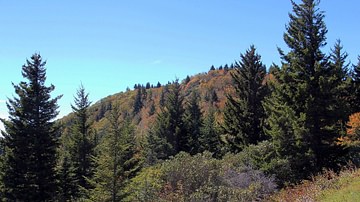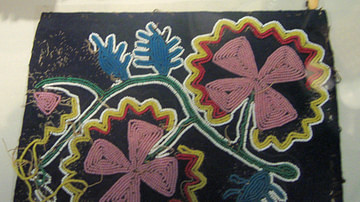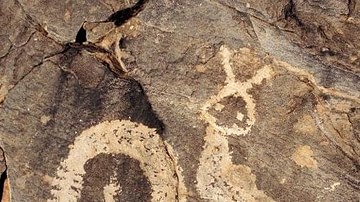Search Articles
Browse Content (p. 25)

Article
Yellow Hair: George Armstrong Custer
Yellow Hair: George Armstrong Custer is the Cheyenne and Arapaho account of Lt. Colonel George Armstrong Custer (l. 1839-1876), his interaction with the Southern Cheyenne Chief Black Kettle (l. c. 1803-1868), the Washita Massacre (27 November...

Article
Tsul'kălû', The Slant-Eyed Giant
Tsul'kălû', The Slant-Eyed Giant is a myth of the Cherokee nation and is among the most popular. The legend relates the story of the great giant, Tsul'kălû', his marriage to a Cherokee maiden, and how the people broke trust with him so that...

Article
The Invasion of Poland in 1939
The leader of Nazi Germany Adolf Hitler (1889-1945) ordered the invasion of Poland on 1 September 1939. Hitler's refusal to withdraw brought a declaration of war from Britain and France on 3 September, and so began the Second World War (1939-45...

Article
The Nûñnĕ′hĭ and Other Spirit Folk
The Nûñnĕ′hĭ are the Cherokee "spirit people", similar to the fairy as sometimes depicted in European medieval folklore, and The Nûñnĕ′hĭ and Other Spirit Folk is a collection of anecdotes about them compiled by American ethnographer James...

Article
US Presidential Election of 1800
The US presidential election of 1800, referred to by Jeffersonians as the Revolution of 1800, was a turning point in the early political history of the United States. It resulted in the victory of Vice President Thomas Jefferson of the Democratic-Republican...

Article
The Unseen Helpers
The Unseen Helpers is a Cherokee tale on the importance of kindness. Generosity is a central cultural value of the Cherokee nation, as it is with Native American nations generally, and is regarded as especially praiseworthy when the giver...

Article
The Man Who Married the Thunder Sister
The Man Who Married the Thunder Sister is a legend of the Cherokee nation about a young warrior who falls in love with a Thunder Sister and follows her home where he finds nothing is what it seems to be, not even the young woman. The story...

Article
Hitler's Occupation of Czechoslovakia
Throughout 1938, Adolf Hitler (1889-1945), the leader of Nazi Germany, threatened to occupy the Sudetenland region of Czechoslovakia. The excuse presented was that Sudeten Germans were being repressed but Hitler was intent on creating a 'Greater...

Article
Ulunsuti Tales
The Ulunsuti tales of the Cherokee deal with the mystical jewel, the Ulunsuti ("transparent"), a diamond on the forehead of the great horned serpent Uktena. The Ulunsuti appears in several Cherokee legends, but the story is developed through...

Article
Custer's Account of the Battle of Washita River
My Life on the Plains or Personal Experiences with Indians (1874) is a full-length narrative by George Armstrong Custer (l. 1839-1876) of his time out west from 1867-1874. The work includes his observations on Native Americans and accounts...